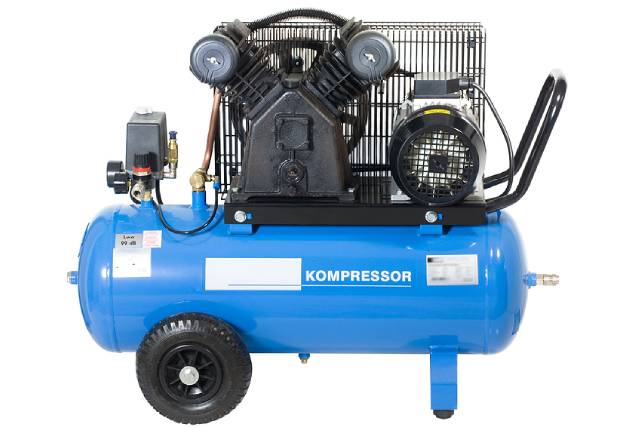Demystifying The Most Common Myths About Air Compressors

Air compressors, the silent powerhouses driving a plethora of industrial processes, are often surrounded by myths that can cloud decision-making for engineers, contractors, facilities managers, and industrial factory purchasers.
Read on as we untangle the common misconceptions surrounding the applications of air compressors within the industrial landscape.
Myth 1: Bigger is always better
Let's address the elephant in the room for engineers and industrial purchasers – the belief that a bigger air compressor equates to superior performance. While it is true that larger units offer increased capacity, the size of the compressor should be meticulously matched to the specific operational requirements.
Think of it as optimising efficiency. Oversized compressors might seem like the solution for heavy-duty tasks, but they can lead to energy inefficiencies, increased wear, and unnecessary costs. On the flip side, an undersized compressor struggling to meet demands can result in frequent breakdowns. The key is a precise assessment of operational needs, ensuring that the compressor size aligns seamlessly with the industrial workload at hand – a tailored approach for optimal performance and longevity.
Myth 2: All compressors are noisy
For contractors, facilities managers, and engineers working in bustling industrial environments, the notion that all air compressors are inherently noisy might raise concerns. The reality, however, is more nuanced. While some compressors can generate considerable noise, advancements in technology have ushered in a new era of quieter models.
Modern compressors often come equipped with noise reduction features – think soundproofing materials, insulated cabinets, and refined engineering designs. For those particularly noise-sensitive applications, options like oil-free compressors or rotary screw compressors can provide a quieter working environment. Couple this with routine maintenance practices, such as lubricating moving parts and tightening any loose components, and you have the perfect harmony between efficiency and a quieter industrial symphony.
Myth 3: Air quality is not a significant concern
For facilities managers and industrial purchasers, the misconception that the quality of compressed air is inconsequential might sound like a potential oversight. In industries where air compressors directly impact products or processes, the quality of compressed air is paramount. Contaminants like oil, moisture, and particulates can compromise equipment and final product quality.
This is where filtration comes into play. Air compressors are equipped with filters and moisture separators designed to ensure the purity of compressed air. Regular maintenance practices, including timely filter replacements and moisture drainage, are critical to maintaining a pristine air supply. Neglecting air quality concerns could lead to costly equipment repairs, increased downtime, and compromised end-product integrity.
Myth 4: Air compressors always require high maintenance
Engineers often grapple with the perception that air compressors are high-maintenance assets. While regular maintenance is essential for optimal performance and longevity, the level of maintenance required depends on factors such as compressor type, usage, and operating environment.
Oil-lubricated compressors may require more attention than their oil-free counterparts. Routine tasks, including checking and replenishing oil levels, inspecting filters, and maintaining air intake elements, contribute to a well-functioning system. Adhering to a systematic maintenance schedule ensures that air compressors operate smoothly, minimising downtime and potential disruptions.
Myth 5: Air compressors are exclusive to industrial settings
For many, the idea that air compressors are exclusively tailored for large-scale industrial applications might limit the scope of consideration. However, the reality is that air compressors come in diverse sizes and configurations, working for various applications and catering to a broad spectrum of tasks.
Portable and compact air compressors are not confined to industrial giants; they have become invaluable tools for smaller-scale applications. From workshops to construction sites, these units offer accessibility, affordability, and ease of maintenance. Industrial factory purchasers can broaden their perspective, recognizing the adaptability of air compressors to diverse operational scales.
Conclusion
Demystifying these common myths surrounding air compressors empowers individuals and companies to make informed decisions, especially in the engineering sector. From precise sizing considerations to meticulous maintenance practices and a recognition of the versatility of these machines, a nuanced understanding ensures that air compressors remain not just tools but strategic assets within the industrial landscape.
One standout player in the realm of air compressors is Winston Engineering. As pioneers in providing cutting-edge solutions for industrial needs, Winston Engineering stands as a testament to the reliability and efficiency of air and screw compressors. Contact us today for more information.

